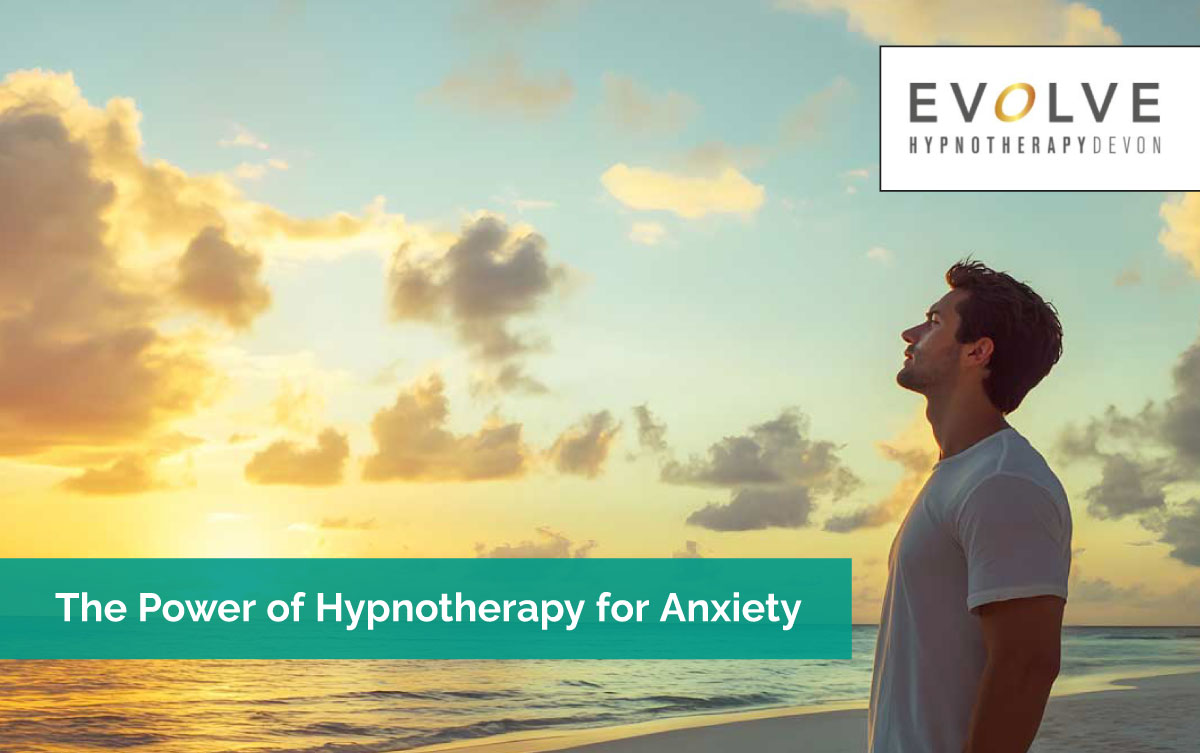The Power of Hypnotherapy for Anxiety
Understanding the Essence of Anxiety
In today’s fast-paced world, feelings of anxiety have become an unavoidable part of our lives. Deadlines, money worries, and future uncertainties can cause strong emotions. These feelings can show up in different ways, leaving us tired and stressed.
Anxiety is a normal reaction to stress, uncertainty, or new situations. However, when it sticks around, it can affect our daily lives. It may make it hard for us to function well.
Anxiety disorders are very common mental health issues. About 30% of people will experience them at some point. These disorders can show up in different ways.
They include generalised anxiety disorder (GAD), social anxiety, panic disorders, obsessive-compulsive disorder (OCD), and post-traumatic stress disorder (PTSD), among others.
Recognising the Signs and Symptoms of Anxiety
Anxiety can feel different for everyone. However, there are common signs and symptoms to help identify when it becomes a problem. These may include:
- Persistent worry or rumination
- Headaches or muscle tension
- Chest pain or rapid heartbeat
- Dizziness or nausea
- Difficulty concentrating or sleeping
- Restlessness or irritability
- Excessive sweating or trembling
- Panic attacks
When these symptoms affect daily life, work, social interactions, or wellbeing, it may be time to get help.
Exploring Hypnotherapy: A Powerful Tool for Anxiety Relief
In recent years, hypnotherapy has gained recognition as an effective approach to managing anxiety and its associated symptoms. This therapy uses hypnosis along with different psychological methods. It provides a complete and personalised way to tackle the main causes of anxiety.
Demystifying Hypnotherapy
Despite its mystical connotations, hypnotherapy is a legitimate and scientifically backed practice. In a hypnotherapy session, the therapist helps the client relax deeply.
This state is called a trance or hypnotic state. In this state, the conscious mind is more open to positive suggestions and images. This helps the therapist reach the subconscious mind and create lasting changes.
Contrary to popular misconceptions, a hypnosis session does not involve loss of control or mind manipulation. Instead, it is a collaborative process where the client remains fully aware and in control, with the ability to accept or reject any suggestions that do not align with their values or beliefs.
The Benefits of Hypnotherapy for Anxiety
Hypnotherapy offers numerous benefits for individuals struggling with anxiety:
- Finding and Addressing Root Causes: Hypnotherapists can help clients discover the main reasons for their anxiety. These reasons may come from past experiences, limiting beliefs, or deep thought patterns. By addressing these root causes, lasting change becomes possible.
- Promoting Relaxation and Stress Reduction: The hypnotic state creates deep relaxation. This can help reduce the physical and emotional effects of anxiety. Regular practice of relaxation techniques can help manage stress levels and reduce the intensity of anxiety symptoms.
- Reframing Negative Thought Patterns: Hypnotherapy helps therapists give positive suggestions and images. This process helps clients change negative thoughts into more helpful and empowering beliefs.
- Boosting Self-Confidence and Self-Belief: Hypnotherapy can help change limiting beliefs and negative self-talk, increasing self-confidence and self-belief. As a result, people can face challenges with more resilience and a positive mindset.
- Developing Coping Strategies: Hypnotherapists can give clients personalised coping strategies and techniques. These include visualisation, affirmations, and self-hypnosis. This helps clients manage anxiety triggers and stay calm in their daily lives.
The Hypnotherapy Experience: What to Expect
If you’re considering hypnotherapy for anxiety, it’s natural to feel curious or apprehensive about the process. Here’s what you can typically expect during a hypnotherapy session:
Initial Consultation
The journey starts with a consultation. During this meeting, the hypnotherapist collects information about your concerns and goals and asks about your medical and personal history. This step is crucial for developing a personalised treatment plan and establishing rapport with the therapist.
Inducing the Hypnotic State
Once you feel comfortable and ready, the hypnotherapist will guide you into a relaxed, focused state known as the hypnotic trance. This process usually includes deep breathing exercises, visualisation techniques, and verbal suggestions. These methods help you reach a state of increased awareness and openness.
Therapeutic Intervention
While in the hypnotic state, the therapist will utilise various techniques tailored to your specific needs. These may include:
- Suggestion Therapy: The therapist will give positive suggestions and images. This helps change negative thoughts, boost self-confidence, and encourage relaxation.
- Visualisation and Imagery: Using clear images and visualisation can strengthen positive beliefs. It can also promote relaxation and help you feel more in control of anxiety triggers.
Post-Hypnotic Suggestions and Self-Hypnosis
Towards the end of the session, the therapist may provide post-hypnotic suggestions or teach you self-hypnosis techniques. These tools can help reinforce the positive changes achieved during the session and empower you to manage anxiety symptoms independently.
Integration and Follow-Up
After the hypnotherapy session, the therapist will help you return to a fully awake state. They will make sure you feel grounded and refreshed. Based on your progress and goals, we may suggest more follow-up sessions. These sessions can help strengthen the benefits and support your journey to better emotional wellbeing.
Embracing the Power of Hypnotherapy: A Journey of Self-Discovery
Hypnotherapy may not work for everyone, but it provides a strong and personalised way to manage anxiety.
Hypnotherapy can help improve emotional wellbeing. It does this by addressing root causes and changing limiting beliefs. It also provides people with effective coping strategies. These changes can lead to lasting positive effects.
However, it’s essential to approach hypnotherapy with an open mind and a willingness to engage in the process fully. Working with a qualified and experienced hypnotherapist is crucial to ensure a safe and effective therapeutic experience.
The Power of the Mind: Exploring Hypnotherapy’s Mechanisms
While the effectiveness of hypnotherapy in managing anxiety is well-documented, understanding the underlying mechanisms can shed light on its profound impact. Hypnotherapy uses the power of the subconscious mind. This mind holds deep beliefs, emotions, and thought patterns. These elements shape our behaviours and perceptions.
Accessing the Subconscious Mind
In a hypnotherapy session, the therapist helps the client enter a focused state called a trance or hypnotic state. In this state, the conscious mind is more open. This lets the therapist bypass the critical factor. The critical factor is the part of the mind that filters and analyses information.
The therapist can then communicate directly with the subconscious.
This access to the subconscious mind helps hypnotherapists find and address the root causes of anxiety. These causes often come from deep beliefs, past experiences, or emotional triggers. These factors may not be clear to the conscious mind.
Reframing Limiting Beliefs and Thought Patterns
One of the key benefits of hypnotherapy for anxiety is its ability to reframe limiting beliefs and negative thought patterns. Hypnotherapists use positive suggestions and imagery to create new, empowering beliefs. These beliefs help reduce negative self-talk and irrational fears that cause anxiety.
For instance, a person struggling with social anxiety may have deeply ingrained beliefs about being judged or rejected in social situations. Through hypnotherapy, the therapist can offer positive suggestions that challenge these beliefs. For example, they might say, “You are confident and capable in social situations,” or “You deserve acceptance and respect.”
By repeatedly reinforcing these positive messages during the hypnotic state, the subconscious mind gradually incorporates these new beliefs, leading to a shift in perspective and a reduction in anxiety-provoking thoughts and behaviours.
Promoting Relaxation and Stress Reduction
Anxiety is often accompanied by physical symptoms such as muscle tension, rapid heartbeat, and shallow breathing. Hypnotherapy can help with these physical symptoms. It does this by creating a deep state of relaxation. This relaxation activates the parasympathetic nervous system, which is the body’s natural way to relax.
During the hypnotic trance, the therapist may help the client with visualisation exercises. They may also suggest ways to relax specific muscle groups. This process can counteract the physiological effects of anxiety, promoting a sense of calm and wellbeing.
Hypnotherapists can teach clients self-hypnosis and relaxation exercises. This helps clients manage anxiety symptoms on their own in daily life.
Enhancing Self-Efficacy and Emotional Resilience
Anxiety can often be exacerbated by feelings of helplessness or a lack of control over one’s thoughts and emotions. Hypnotherapy addresses this by enhancing self-efficacy – the belief in one’s ability to cope with challenges and achieve desired outcomes.
Through positive suggestions and imagery, hypnotherapists can reinforce the client’s sense of inner strength, resilience, and self-confidence. For example, saying, “You have the strength to overcome any challenge”, can boost your confidence and self-belief.
By building a stronger sense of self-efficacy, people can better handle anxiety triggers. This helps them cope with stress. As a result, they can lessen the negative effects of anxiety in their daily lives.
Integrating Hypnotherapy with Other Therapeutic Approaches
Mindfulness and meditation practices have been shown to be effective in reducing anxiety and promoting emotional wellbeing. Hypnotherapy can enhance these practices by facilitating a deeper state of relaxation and focus, allowing individuals to more fully engage with mindfulness exercises and meditation techniques.
Additionally, hypnotherapists can incorporate mindfulness and meditation principles into their sessions, teaching clients how to cultivate present-moment awareness and acceptance, which can help them better manage anxiety triggers and maintain a sense of calm in their daily lives.
Integrating with Talk Therapy and Psychotherapy
For individuals dealing with more complex or trauma-related anxiety, hypnotherapy can be integrated with talk therapy or psychotherapy approaches. By accessing the subconscious mind through hypnosis, therapists can facilitate the exploration and resolution of deeply rooted emotional issues or past traumas that may be contributing to anxiety.
This integrated approach can provide a safe and supportive environment for clients to process and heal from traumatic experiences, while also equipping them with the tools and techniques to manage anxiety symptoms more effectively.
Enhancing Lifestyle and Self-Care Practices
While hypnotherapy directly addresses the psychological and emotional aspects of anxiety, it can also be combined with lifestyle and self-care practices to promote overall wellbeing. Hypnotherapists may provide suggestions or guidance on incorporating regular exercise, healthy eating habits, stress management techniques, and other self-care practices into their clients’ lives.
By addressing both the psychological and physiological components of anxiety, this integrated approach can lead to more comprehensive and lasting relief from anxiety symptoms.
Choosing the Right Hypnotherapy for Anxiety: Navigating the Path to Healing
While the benefits of hypnotherapy for anxiety are well-established, the success of the treatment largely depends on finding the right hypnotherapist – someone who not only possesses the necessary qualifications and expertise but also aligns with your personal preferences and needs.
Exploring Therapeutic Approaches and Specialties
Hypnotherapists may specialise in different therapeutic approaches or areas of expertise. When seeking treatment for anxiety, it is important to find a practitioner who has experience and a proven track record in addressing anxiety-related conditions.
Some hypnotherapists may specialise in specific types of anxiety disorders, such as social anxiety or panic disorders, while others may take a more generalised approach. Additionally, some practitioners may integrate hypnotherapy with other therapeutic modalities.
During your initial consultation, don’t hesitate to ask the hypnotherapist about their approach, experience, and success rates in treating anxiety. This will help you determine if their methods align with your needs and preferences.
Assessing Communication and Rapport
Effective communication and a strong rapport between the client and the hypnotherapist are crucial for a successful therapeutic relationship. During your initial consultation, pay attention to how the hypnotherapist communicates and whether you feel comfortable and understood.
A good hypnotherapist should be empathetic, non-judgmental, and able to create a safe and supportive environment for you to explore your thoughts and feelings. They should also be willing to answer your questions and address any concerns you may have about the process.
Considering Practical Factors
In addition to the therapeutic aspects, practical factors such as location, availability, and cost may also play a role in your decision. While hypnotherapy is not typically covered by the NHS, many private practitioners offer flexible payment options or sliding-scale fees to make their services more accessible.
Trusting Your Intuition
Ultimately, choosing the right hypnotherapist is a personal decision that should be guided by your intuition and comfort level. While qualifications and expertise are important, it is equally crucial to find a practitioner with whom you feel a genuine connection and trust.
Trust your instincts and don’t hesitate to explore other options if you don’t feel fully comfortable with a particular hypnotherapist. Remember, the therapeutic relationship is a collaborative partnership, and finding the right fit can significantly enhance the effectiveness of the treatment.
Integrating Hypnotherapy into a Comprehensive Anxiety Management Plan
While hypnotherapy can be a powerful tool in managing anxiety, it is often most effective when integrated into a comprehensive anxiety management plan that addresses various aspects of an individual’s wellbeing.
Fostering a Supportive Environment
Anxiety can often be exacerbated by environmental factors, such as stressful living or working conditions, unsupportive relationships, or lack of social connections.
Hypnotherapists may work with clients to identify and address these environmental factors, providing guidance on creating a more supportive and nurturing environment.
This may involve:
- Encouraging the development of a strong support system, whether through family, friends, or support groups, to provide a sense of community and understanding.
- Exploring strategies for setting healthy boundaries and communicating needs effectively in personal and professional relationships.
- Identifying and addressing sources of stress or conflict in the living or working environment.
- Promoting self-care practices and activities that bring joy, relaxation, and a sense of fulfilment.
By fostering a supportive and nurturing environment, individuals can reduce the external stressors that may contribute to or exacerbate anxiety, creating a more conducive environment for healing and personal growth.
Ultimately, the most effective approach to managing anxiety often involves a multifaceted strategy that addresses various aspects of an individual’s wellbeing. By integrating hypnotherapy with lifestyle changes, mindfulness practices, professional support, and environmental considerations, individuals can develop a comprehensive and personalised plan for overcoming anxiety and achieving greater emotional resilience and overall wellbeing.
The Power of Visualisation: Harnessing the Mind’s Potential
One of the key techniques employed in hypnotherapy for anxiety is visualisation, a powerful tool that harnesses the mind’s innate ability to influence our thoughts, emotions, and even physiological responses. By engaging the subconscious mind through vivid imagery and mental representations, visualisation can profoundly impact our perceptions and experiences, making it an invaluable asset in managing anxiety.
Understanding the Mind-Body Connection
The mind and body are intrinsically connected, and our thoughts and emotions can have a profound impact on our physical wellbeing. When we experience anxiety, our body responds with a cascade of physiological changes, such as increased heart rate, rapid breathing, and muscle tension, as part of the fight-or-flight response.
Visualisation taps into this mind-body connection by creating mental images and scenarios that can influence our emotional and physical states. By visualising calming and relaxing scenarios, individuals can counteract the physiological effects of anxiety, promoting a sense of calm and relaxation.
Guided Imagery and Relaxation
During a hypnotherapy session, the therapist may guide the client through a series of visualisation exercises designed to induce a state of deep relaxation. This may involve imagining a peaceful and serene environment, such as a tranquil beach or a lush forest, and focusing on the sensory details of the scene.
As the client engages with the visualisation, the therapist may provide suggestions and prompts to enhance the sensory experience, such as the sound of waves crashing or the scent of pine trees. By immersing themselves in this imaginary environment, individuals can activate the relaxation response, counteracting the physiological effects of anxiety and promoting a sense of calm and tranquillity.
Reframing Anxiety Triggers
Visualisation can also be a powerful tool for reframing anxiety triggers and challenging negative thought patterns. When faced with a situation that typically induces anxiety, individuals can visualise themselves responding with confidence and resilience, effectively reprogramming their subconscious mind to perceive the problem in a more positive light.
For example, if public speaking is a significant source of anxiety, the hypnotherapist may guide the client through a visualisation exercise where they imagine themselves delivering a confident and engaging presentation, receiving positive feedback and applause from the audience. By repeatedly engaging in this visualisation, the client can begin to reshape their perception of public speaking, reducing the associated anxiety and fostering a sense of self-assurance.
Enhancing Self-Efficacy and Confidence
Visualisation can also be used to enhance self-efficacy and confidence, two crucial factors in managing anxiety. By visualising themselves successfully navigating challenging situations or achieving desired goals, individuals can cultivate a stronger sense of self-belief and resilience.
The hypnotherapist may guide the client through visualisations that reinforce positive affirmations and self-talk, such as “I am capable and confident in handling stressful situations” or “I have the strength and resources to overcome any obstacle.” These positive visualisations can help counteract negative self-talk and limiting beliefs, empowering individuals to approach anxiety-provoking situations with a greater sense of confidence and self-assurance.
Incorporating Visualisation into Daily Practice
While visualisation exercises are typically conducted during hypnotherapy sessions, the power of this technique lies in its ability to be integrated into daily practice. Hypnotherapists may provide clients with personalised visualisation scripts or guided audio recordings to practice at home, reinforcing the positive effects of the therapy and fostering a sense of self-empowerment.
By regularly engaging in visualisation exercises, individuals can reinforce the positive changes achieved during hypnotherapy sessions and develop a stronger connection between their mind and body. This daily practice can become a powerful tool for managing anxiety triggers as they arise, enabling individuals to quickly access a state of calm and relaxation through the power of their own imagination.
The power of visualisation in hypnotherapy for anxiety lies in its ability to tap into the mind-body connection, reframe negative thought patterns, and cultivate a sense of self-efficacy and confidence. By engaging the subconscious mind through vivid imagery and mental representations, individuals can transform their perceptions and experiences, ultimately empowering them to overcome the debilitating effects of anxiety and reclaim a sense of inner peace and wellbeing.
If you are interested in how Hypnotherapy for Anxiety can help you overcome anxiety, then please do contact Sarah – Clinical Hypnotherapist – DSFH.




